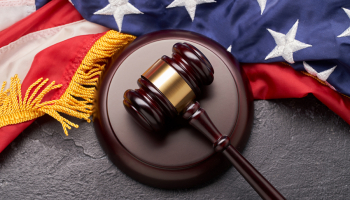Individuals in the justice system face barriers in entering the financial system, reveals ABA Foundation
Recommendations include Bank On-certified accounts, greater flexibility around identification and financial education
- |
- Written by Banking Exchange staff

A whitepaper from American Bankers Association Foundation has identified five barriers that prevent justice-system involved individuals from entering the financial system.
According to “Strategies to Expand Financial Services Access for Individuals Involved in the Criminal Justice System” they include a lack of valid identification or permanent address, prior problems managing a bank account, misperceptions that a conviction record will disqualify someone from opening an account, levies on bank accounts or court garnishment orders because of past-due debt and high levels of fear or anxiety around banking services.
The paper also profiles existing bank initiatives and outlines potential strategies banks can use to expand financial services access to the unbanked and underserved population, as well as how they can play a supporting role in the re-entry process.
Corey Carlisle, executive director at ABA Foundation said: “As an industry committed to financial inclusion, we need to understand and address the obstacles preventing justice-involved Americans from accessing the financial services they need.
“This new whitepaper examines those barriers and identifies several bank initiatives that could help reduce them. We hope these real-world case studies inspire other financial institutions to consider how they can assist justice-involved individuals within their own communities,” said Carlisle.
According to the paper, for people on work release, under supervision or re-joining the workforce after completing their sentence, the ability to cash a check without high fees is vital.
The paper recommended the Bank On-certified accounts which offer low costs, no overdraft fees, as well as transaction capabilities such as debit card and online bill pay.
Another option to address barriers, the report revealed, is for banks to create partnerships with local or state department of corrections to allow certain justice-involved people to cash certain kinds of checks.
For example, Bank of Hawaii provides savings accounts and basic check cashing for participants in the Department of Public Safety Laumaka Work Furlough Program, a work-release program for inmates at the Oahu and Maui Community Correctional Centers.
According to the report, banks may also want to consider factoring “inclusive design” into their products and services by modifying restrictions that may result in unintended denials of service for justice-involved individuals.
It may also include waiving consideration of past account mismanagement or greater flexibility around identification by allowing prison documents to meet those requirements.
Financial education classes or workshops to facilitate the re-entry process were also recommended by the paper. Successful examples include the Old National Bank’s 12 Steps to Financial Success program which is tailored to individuals incarcerated for substance-related offenses.
Tagged under Community Banking, Feature3, Feature, Fair Lending, BankOn Initiative, Inclusion, Human Rights, Diversity,













